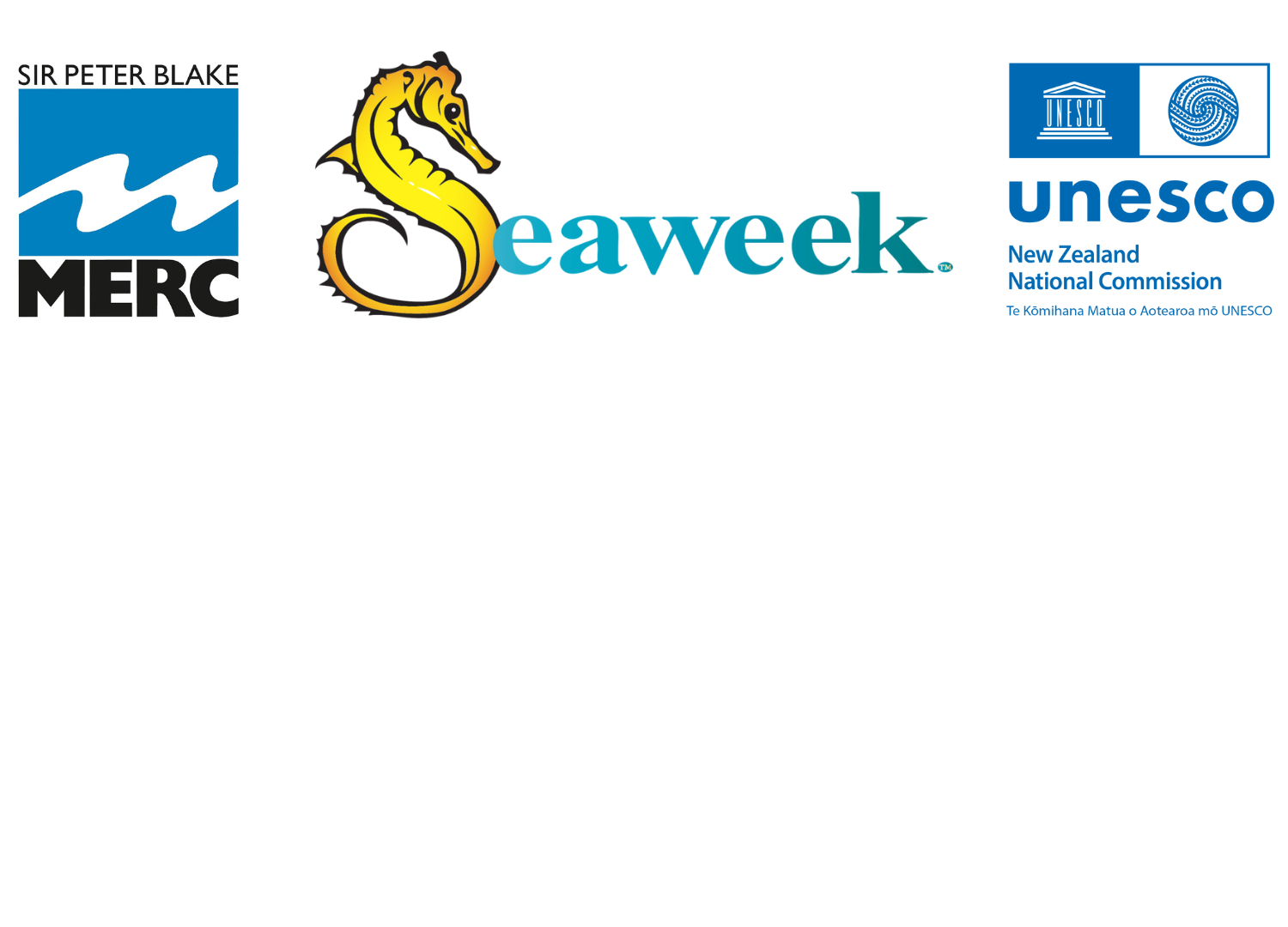.png)
Bringing Ocean Literacy to life
Ocean Literacy generally means understanding the ocean's influence on us as well as our influence on the ocean. The Ocean Literacy Framework includes 7 Ocean Literacy Principles that are key to understanding our relationship with the ocean. We recently developed a guide to support teachers in building ocean literacy in classrooms.
In June, we began our Ngā Kōrero III series, supported by the New Zealand National Commission for UNESCO with the goal of bringing Ocean Literacy Principles to life through in-person and online events focused on each principle. World Ocean Day at MERC was the first event of this series, which focused on principle #2: The ocean and life in the ocean shape the features of Earth. We explored the coastal cliffs and the rocky and sandy shore learning all about processes that shape our coastline including erosion and sedimentation and the marine species involved.
Our next two events were webinars focused on principle #1: Earth has one big ocean with many features, in July, and principle #7: The ocean is largely unexplored, in August.
Speakers Dr. Dan Hikuroa, Dr. Brendon Dunphy, and Dr. Erin Bomati introduced us to OLP 1 exploring concepts of thinking like a fish, how seabirds experience interconnected ocean systems and ways citizen scientist sailors can help survey the global ocean.
Sadie Mills, Dr. Sarah Seabrook, and Dr. Krista van der Linde took us on a journey to into the unknown to explore OLP 7 with stories from the deep sea, under the Antarctic ice, and biggest mysteries surrounding even some of our most iconic marine mammals.
In September, we held an in-person event in conjunction with the Department of Conservation's Conservation Week at Sir Peter Blake MERC focused on principle #4: The ocean makes Earth habitable. Together with DOC we conducted a Litter Intelligence survey and beach clean with speakers Dr. Conrad Pilditch and Adam Whatton sharing more insight into ways the ocean supports life on Earth and how we can help the ocean thrive including new protection in the Hauraki Gulf.
Our last webinar in October aligned with the International Day of Climate Action on principle #3: The ocean is a major influence on weather and climate. Dr. Cliff Law, Dr. Matt Pinkerton, and Isaac Morunga guided us through important ways the ocean shapes Aotearoa's past, present, and future weather and climate and Indigenous and youth-led initiatives for building climate resilience.
Seaweek 2026 in March will include many events across the country with an emphasis on principle #6: The ocean and humans are inextricably interconnected. Learn more about how you can get involved!
Our final event of the series will be back at MERC in May, highlighting principle #5: The ocean supports a great diversity of life and ecosystems, which will align with the International Day for Biological Diversity.
-1752788344-COPY.png)
While most participants who completed polls or surveys about our webinars and first two in-person events had never heard of ocean literacy before, every single one of them felt more knowledgeable about ocean literacy and one or more of the seven Ocean Literacy Principles afterwards.
Low ocean literacy levels are problematic because they lead to low prioritization of ocean protection. Understanding how the ocean supports our wellbeing and how our activities help or harm the ocean is essential for finding solutions to the biggest challenges facing the ocean and ourselves. While many participants felt concerned as they learned more about these issues through our events, they overwhelmingly felt inspired, intrigued and empowered. There is so much we can accomplish together!
.png)
You can find recordings from each event on our YouTube channel, along with all of our past webinars.
For Ocean Literacy resources to use in the classroom, see our Ocean Literacy Educators Guide, Creature Content, and more resource links!
